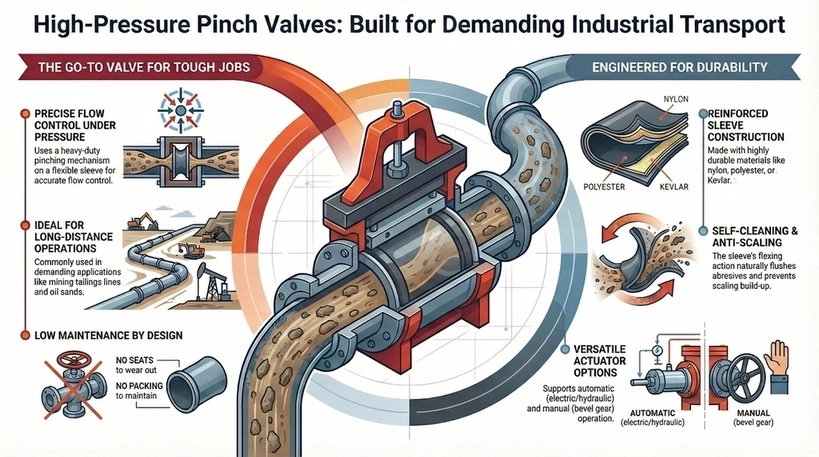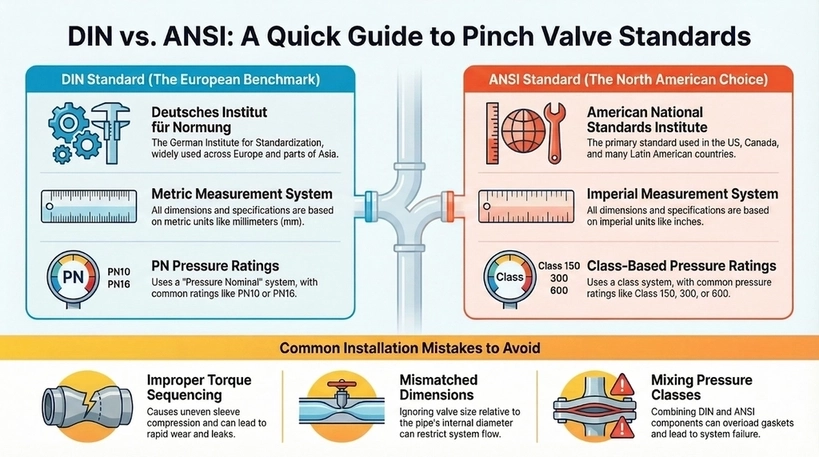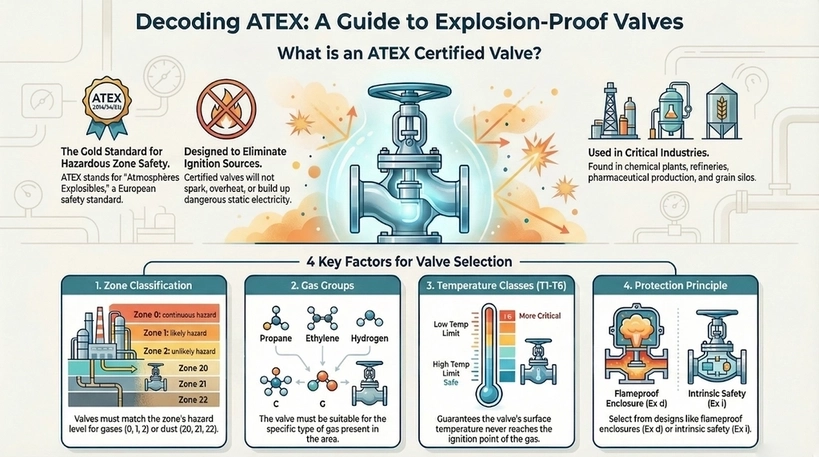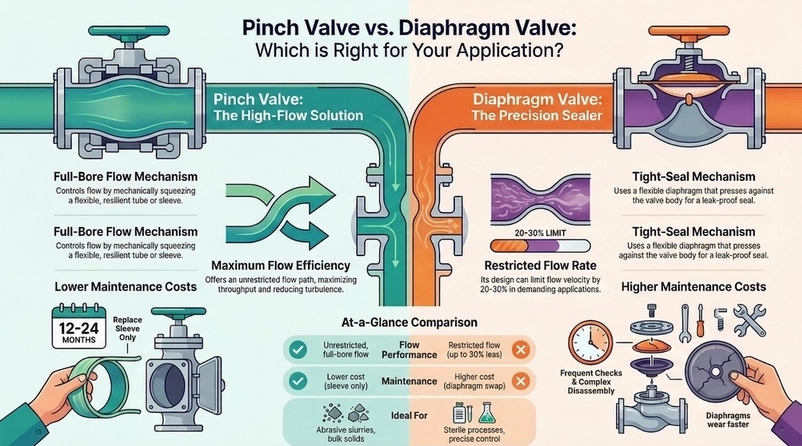

Choosing the right type of pinch valve—manual, pneumatic, or electric—directly affects how your system performs. Each option has clear strengths depending on how your process runs, what kind of control you need, and the infrastructure already in place.
This guide breaks down how they work and where each one fits best.
A manual pinch valve uses a handwheel or lever to compress the sleeve and stop flow. There are no external power requirements, no automation, and almost no risk of system failure due to actuation.
That’s what makes it ideal for low-frequency adjustments, shutoff valves, or systems where budget matters more than speed.
They’re often found in small-scale systems, water treatment lines, or areas where automation isn’t needed. The big advantage? Low cost and simple maintenance. The trade-off is that it requires someone to be there to operate it, which isn’t always practical in a large facility.
If your valve is only opened or closed a few times a week (or less), manual is more than enough.
If speed and automation are priorities, a pneumatic pinch valve is a strong fit. These valves use compressed air to open or close the sleeve, which makes them fast, consistent, and well-suited for remote or high-volume operations.
How does a pneumatic pinch valve work?
Pneumatic pinch valves work by compressing air and pushing it down on a rubber sleeve inside the valve body. This action pinches it closed. Remove the air pressure, and the sleeve springs back open.
It’s a clean operation—no metal touches the fluid, making this valve great for slurries, powders, or corrosive materials
Pneumatic valves are common in food processing, mining, and chemical dosing where systems need to cycle quickly. The only downside? You need a compressed air system. If you already have that in place, this option becomes extremely cost-effective over time.
An electric pinch valve uses a motor and gear assembly to move the valve sleeve. It’s slower than pneumatics but far more precise. You can control the opening percentage, automate sequences, and integrate it with PLCs or SCADA systems.
This makes electric pinch valves ideal for batch processing, water treatment plants, and any system where flow needs to be adjusted gradually—not just opened or closed. They’re also great where air supply is unavailable or costly to maintain.
While electric-actuated pinch valves come with a higher upfront cost, the precision and long-term reliability often justify the investment
Each pinch valve type has a role to play. If you need simplicity, go manual. For fast cycling and remote control, pneumatic is your best bet. If your system needs fine-tuned automation, electric is the way to go.Not sure what fits best? Contact us or explore our pinch valve product page. We’ll help you choose the right solution.

High pressure pinch valves, like PN16 pinch valve and class 150 pinch valve designs, involve a rugged and heavy-duty pinching mechanism in positioning the sleeve, resulting in an almost accurate and measurable flow of media. This kind of valve is popular and commonly used for long distance operations in mining tailings lines or oil sands, […]

Understanding pinch valve dimensions and flanges ensures seamless integration into piping systems, particularly when choosing between DIN vs ANSI. The two are different but commonly used standards by organizations in engineering, manufacturing, and product design. DIN was developed in Germany but widely adopted across Europe and parts of Asia. Meanwhile, ANSI standards, which originate from […]

Selecting the appropriate explosion proof valve is essential for safety in industries that pose explosion risks. ATEX certified valves guarantee compliance with European standards, preventing ignition sources from heat, sparks, or static electricity. This blog explores key factors for choosing ATEX certified explosion proof valves that ensure overall operational safety, highlighting the entailed regulations and […]

When handling abrasive or viscous media in industrial processes, the type of valve used can heavily affect the performance, efficiency, and overall user experience. In relation to this, two of the most common valve options are pinch and diaphragm valves. In this blog, we delve into the pinch valve vs diaphragm valve discussion, analyzing flow […]



